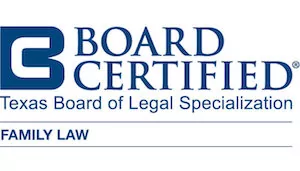
Regardless of whether you are the parent seeking relocation or opposing it, it’s important to have someone in your corner who understands the process and can help you protect your rights and interests. If you have questions about child relocation in Texas, speak with The Woodlands relocation attorney at Ramos Law Group, PLLC. We can discuss your options and see how our team can help you move forward today.
Child Custody in Texas: An Overview
With respect to child custody matters in Texas, a conservator is an adult who has decision-making authority regarding the child’s life and upbringing. Under Texas law, there is a rebuttable presumption that appointing both parents of a child as joint managing conservators is in the best interest of the child. In other words, unless the court finds that joint conservatorship would impair the child’s life, health, or safety, both parents will share decision-making responsibilities. Sometimes, however, a sole managing conservator with exclusive decision-making authority may be appointed instead.
Regardless of whether one parent is the sole managing conservator or both parents act as joint managing conservators—one parent must be appointed the conservator with the exclusive right to designate the child’s primary residence. This determination can be made by court order or through the agreement of both parents in a written parenting plan filed with the court.
That said, the judge can apply certain restrictions even when the court designates one parent as the conservator with the exclusive right to determine the child’s primary residence. For example, under Texas Family Code § 153.133, a parenting plan for joint managing conservatorship may specify a particular geographic area where the custodial parent must maintain the primary residence.
What Is Child Relocation in the Context of Child Custody in Texas?
Child relocation refers to a parent with primary custody wishing to move to a different location from the one established as the child’s primary residence in the original custody order. The requested relocation can be either within Texas or to a new state entirely.
In most cases, if the proposed relocation significantly impairs the other parent’s custody or visitation rights, the request will not be granted unless you meet certain criteria.
Texas Child Relocation Law
After the court enters a custody order, the parties must comply with its terms. This includes compliance with the specified geographic area where the custodial parent must maintain the child’s primary residence. However, there are situations where changes to the original custody order are justified.
Pursuant to Texas Family Code § 156.101, the court may modify an existing custody order if “the circumstances of the child, a conservator, or other party affected by the order have materially and substantially changed” since the entry of the initial order. However, the change would need to be in the best interest of the child for a judge to agree to modify an existing order.
Factors to Consider
In determining whether to allow a proposed child relocation, the court will typically consider factors such as the following:
- The total distance of the requested relocation,
- Availability and ease of reasonable travel arrangements for the child to see the noncustodial parent,
- Ability to preserve the relationship and visitation arrangements between the child and noncustodial parent,
- Motivations of the party seeking relocation,
- The current relationship between the child and the noncustodial parent, and
- The potential impact of the proposed relocation on the child’s relationship with the noncustodial parent.
Of course, this is not an exhaustive list, and the judge may consider other relevant factors as they see fit.
Process of Child Relocation in Texas
Typically, the parent who is asking to relocate will need to seek a modification to the original custody order. Below are the general steps involved in requesting a modification to a child custody order under Texas law:
- One parent files a suit in court requesting modification of the applicable order;
- That parent serves the other parent with the lawsuit, providing notice of their intent to request child relocation;
- The parties can attempt mediation or discussions to try to negotiate an agreement regarding the requested modification to the original custody order,
- If no agreeable resolution can be reached, the parties will then have an opportunity to present their arguments to a judge at a child relocation hearing, and
- The court will make a decision and enter an order on the requested child relocation.
If you have questions about the child relocation process in Texas, be sure to speak with a qualified family law attorney to discuss your options in more detail.
What to Expect at a Child Relocation Hearing
The primary purpose of the child relocation hearing is to allow the parties to present their respective arguments in court. At this hearing, parties should be prepared to:
- Present evidence in support of their positions,
- Provide additional details through testimony regarding the reasons for or against the requested relocation,
- Question witnesses who may have personal knowledge about the situation, and
- Argue their case to the judge.
Ultimately, the court will make its decision based on what is in the best interest of the child in light of the available facts. Accordingly, use this hearing as an opportunity to show the judge why the relief you are seeking is in the child’s best interest.
The Woodlands Relocation Lawyer
Child relocation is a complex legal process that can have long-term effects on you and your family. Thus, while there is no requirement to have a lawyer for a child relocation in The Woodlands, TX, having an attorney on your side can be an invaluable asset.
At the Ramos Law Group, PLLC, we have devoted our practice to divorce and family law. As such, when you hire one of our attorneys, you can feel confident knowing that you have an experienced team in your corner with the knowledge, tools, and resources necessary to help you fight for your rights. If you have questions about the Texas child relocation process or aren’t sure where to begin, give us a call to schedule a consultation today.










